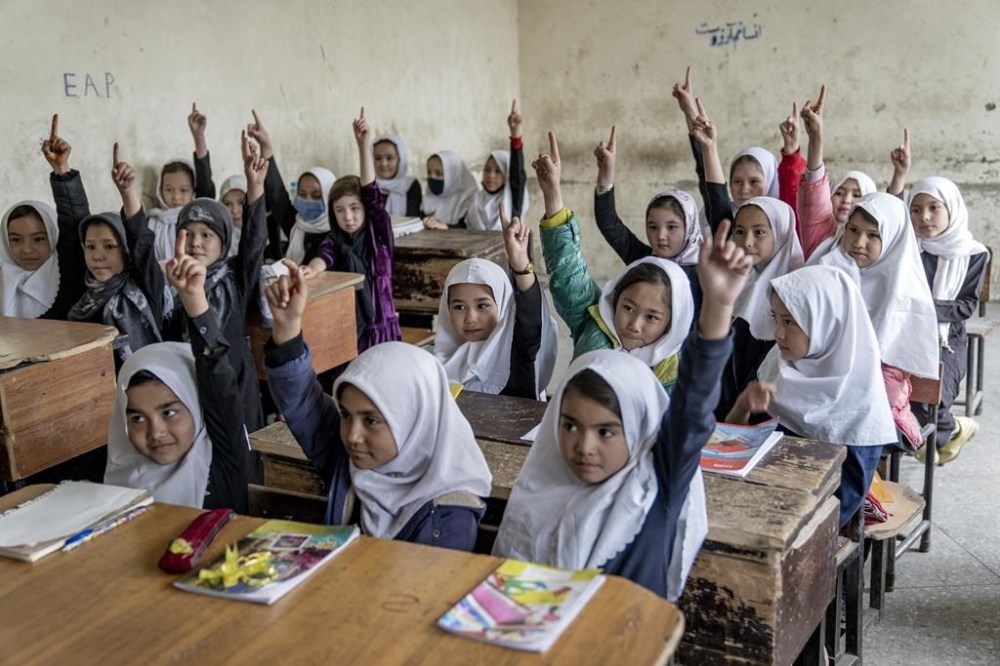UN Security Council criticizes Taliban ban on Afghan women’s medical education
Advertisement
Read this article for free:
or
Already have an account? Log in here »
To continue reading, please subscribe:
Monthly Digital Subscription
$0 for the first 4 weeks*
- Enjoy unlimited reading on winnipegfreepress.com
- Read the E-Edition, our digital replica newspaper
- Access News Break, our award-winning app
- Play interactive puzzles
*No charge for 4 weeks then price increases to the regular rate of $19.95 plus GST every four weeks. Offer available to new and qualified returning subscribers only. Cancel any time.
Monthly Digital Subscription
$4.99/week*
- Enjoy unlimited reading on winnipegfreepress.com
- Read the E-Edition, our digital replica newspaper
- Access News Break, our award-winning app
- Play interactive puzzles
*Billed as $19.95 plus GST every four weeks. Cancel any time.
To continue reading, please subscribe:
Add Free Press access to your Brandon Sun subscription for only an additional
$1 for the first 4 weeks*
*Your next subscription payment will increase by $1.00 and you will be charged $16.99 plus GST for four weeks. After four weeks, your payment will increase to $23.99 plus GST every four weeks.
Read unlimited articles for free today:
or
Already have an account? Log in here »
Hey there, time traveller!
This article was published 13/12/2024 (391 days ago), so information in it may no longer be current.
UNITED NATIONS (AP) — The U.N. Security Council said Friday it was deeply concerned about the recent decision by Afghanistan’s Taliban rulers to ban women from medical education, which could leave millions of women and girls without health care in the future.
The council criticized “the increasing erosion” of human rights under the Taliban, especially for women and girls who have been denied access to education beyond the sixth grade, economic opportunities, participation in public life, freedom of movement and other basics.
Authorities previously had not confirmed reports that Taliban leader Hibatullah Akhundzada ordered educational institutions to stop providing medical courses for women. In Afghanistan, women and girls can only be treated by female doctors and health professionals.

In a resolution adopted unanimously Friday, the Security Council criticized not only the medical education ban but the Taliban’s “vice and virtue” directive issued in August that further restricts women’s rights, including prohibiting their voices from being heard in public.
The resolution also extends the mandate of the U.N. expert team monitoring sanctions against the Taliban for 14 months.
The Taliban seized power in Afghanistan in 2021 as U.S. and NATO forces withdrew following two decades of war. No country officially recognizes them as Afghanistan’s government.
The U.N. has said that recognition is almost impossible while bans on female education and employment remain in place and women can’t go out in public without a male guardian.
U.N. special envoy for Afghanistan, Roza Otunbayeva, told the council this week that women and girls are “facing progressive erasure from almost all walks of life.”
She said the Taliban announcement in early September that female students would be barred from attending medical institutes and classes of higher education will have serious consequences.
“If fully implemented, this would have deadly implications for women and girls in particular, but also for men and boys, entire communities and the country as a whole — by denying Afghans a functioning health care system that is open to all.”
“I have strongly urged the de facto authorities to reconsider,” Otunbayeva said.

